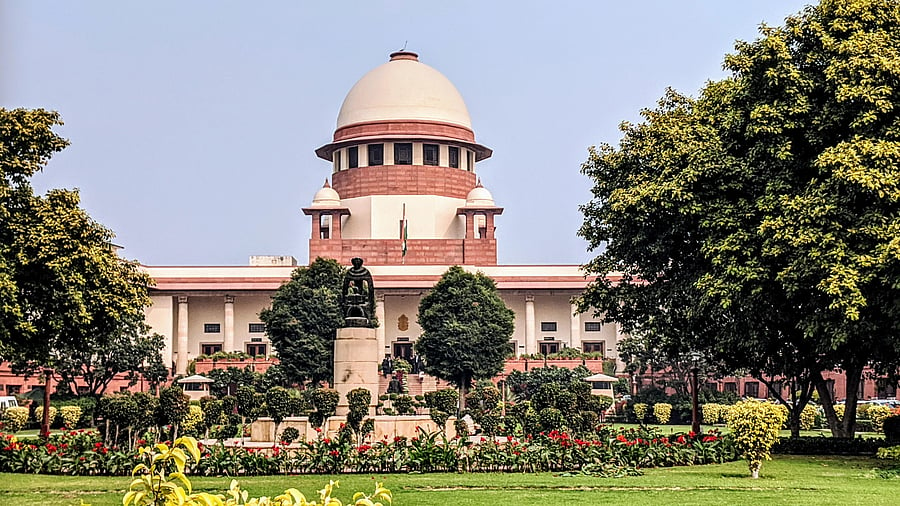
The Supreme Court of India.
Credit: iStock
New Delhi: The Supreme Court on Friday said a complaint under the Sexual Harassment of Women at Workplace (Prevention, Prohibition and Redressal) Act, 2013 is mandatorily required to be filed within a maximum period of six months.
The top court upheld rejection of a woman faculty member's plea against such incidents by the Vice Chancellor of West Bengal National University of Juridical Sciences, Kolkata, for time barred.
In its judgment on a plea by the complainant, a bench of Justices Pankaj Mithal and Prasanna B Varale said, "We are of the view that the division bench of the High Court committed no error of law in restoring the decision of the LCC (Local Complaint Commitee) that the complaint of the appellant is time barred and is liable to be dismissed.''
The bench, however, directed that the incidents of alleged sexual harassment on part of the V-C may be forgiven but allowed to haunt the wrongdoer forever.
"It is advisable to forgive the wrongdoer, but not to forget the wrongdoing. The wrong which has been committed against the appellant may not be investigated on technical grounds, but it must not be forgotten,'' Justice Mithal wrote in 15-page judgment.
The bench directed that this judgment would be made part of the resume of the V-C. The court bound him personally to ensure strict compliance to this direction.
The LCC rejected the complaint as barred by time since the last alleged incident of sexual harassment occurred in April 2023; whereas the complaint was filed on December 26, 2023.
This was not only beyond the prescribed period of limitation of three months but also beyond the extendable period of limitation of six months, the court noted.
The court noted, the appellant, in filing the complaint, also sought condonation of delay, meaning that she was conscious of the fact that her complaint was delayed.
It also proved that she herself treated the act of April 2023, to be the last incident of sexual harassment and as such, tried to explain the delay in filing the complaint, the court said.
The single judge bench of the HC had restored her complaint but the division bench allowed appeal against it.
The apex court also noted the incident of removal of appellant subsequently as the Director, Centre of Financial, Regulatory and Governance Studies cannot be attributed as an act of sexual harassment in connection with the previous incidents, as it was based upon the report of an independent body.
The court found no such direct link between the last incident of sexual harassment which happened in April 2023, and those referred to subsequently in August 2023 or December 2023.
"The said decision (her removal as director) may have caused inconvenience to her or may have given an impression that they are in line with previous acts of harassment, but they were not part of the continued sexual harassment,'' the bench said.
Referring to Section 9 of the POSH Act, the bench said, a complaint of sexual harassment is mandatorily required to be filed within a period of three months from the date of the last incident of such harassment or within a further extended period of three months, i.e., within a maximum period of six months from the date of the last incident of sexual harassment.
The court emphasised, no doubt, the issue of limitation is ordinarily a mixed question of fact and law and it may not be possible to throw out a complaint at the threshold without collecting material on the factual aspects relating to the limitation.
"Nonetheless, where a complaint on the simple reading of the averments made therein appears to be patently barred by limitation, it can be rejected at the very first instance on the analogy of Order VII Rule 11 CPC, without even calling the other side to participate in the proceedings,'' the court said.
